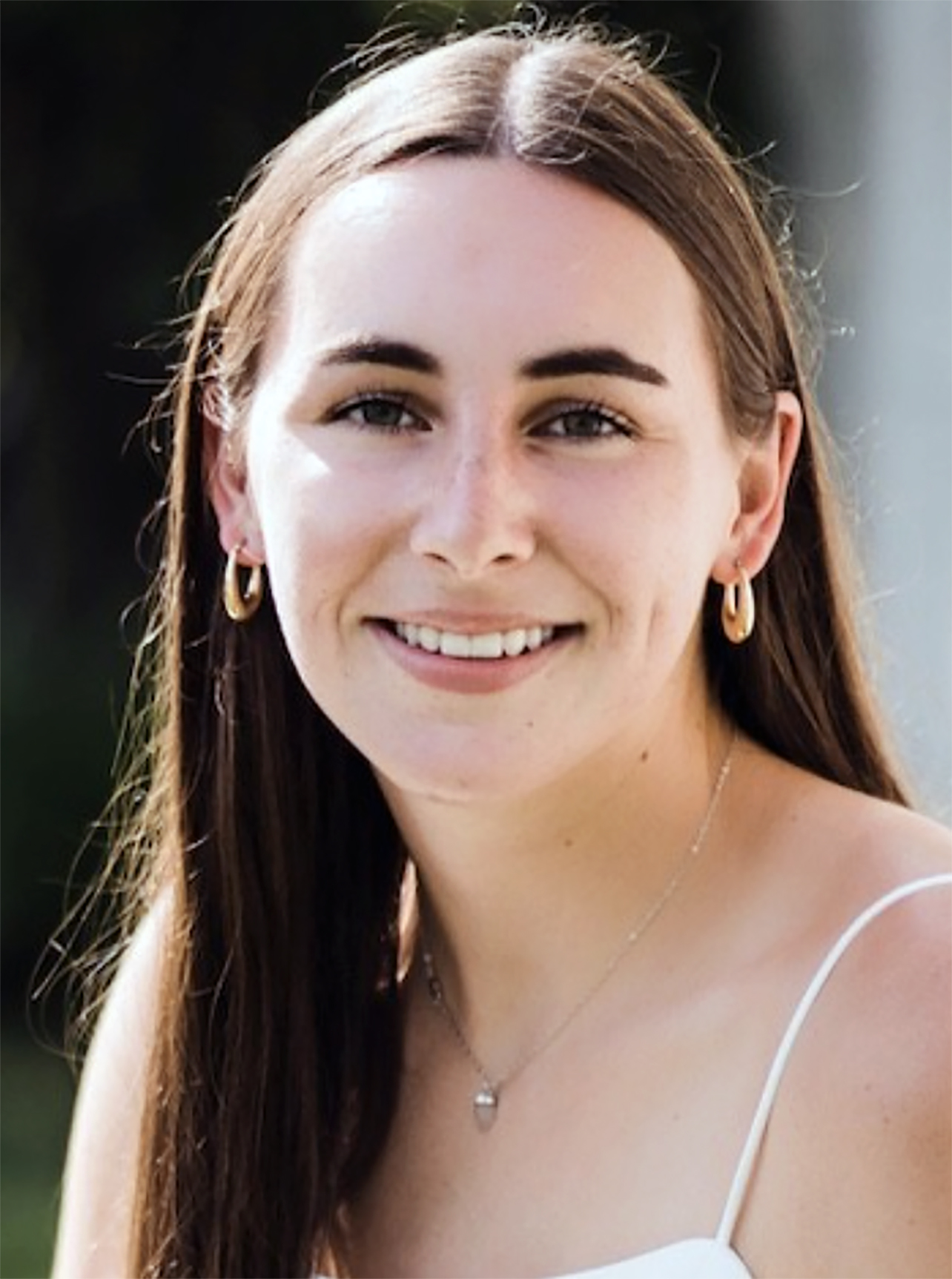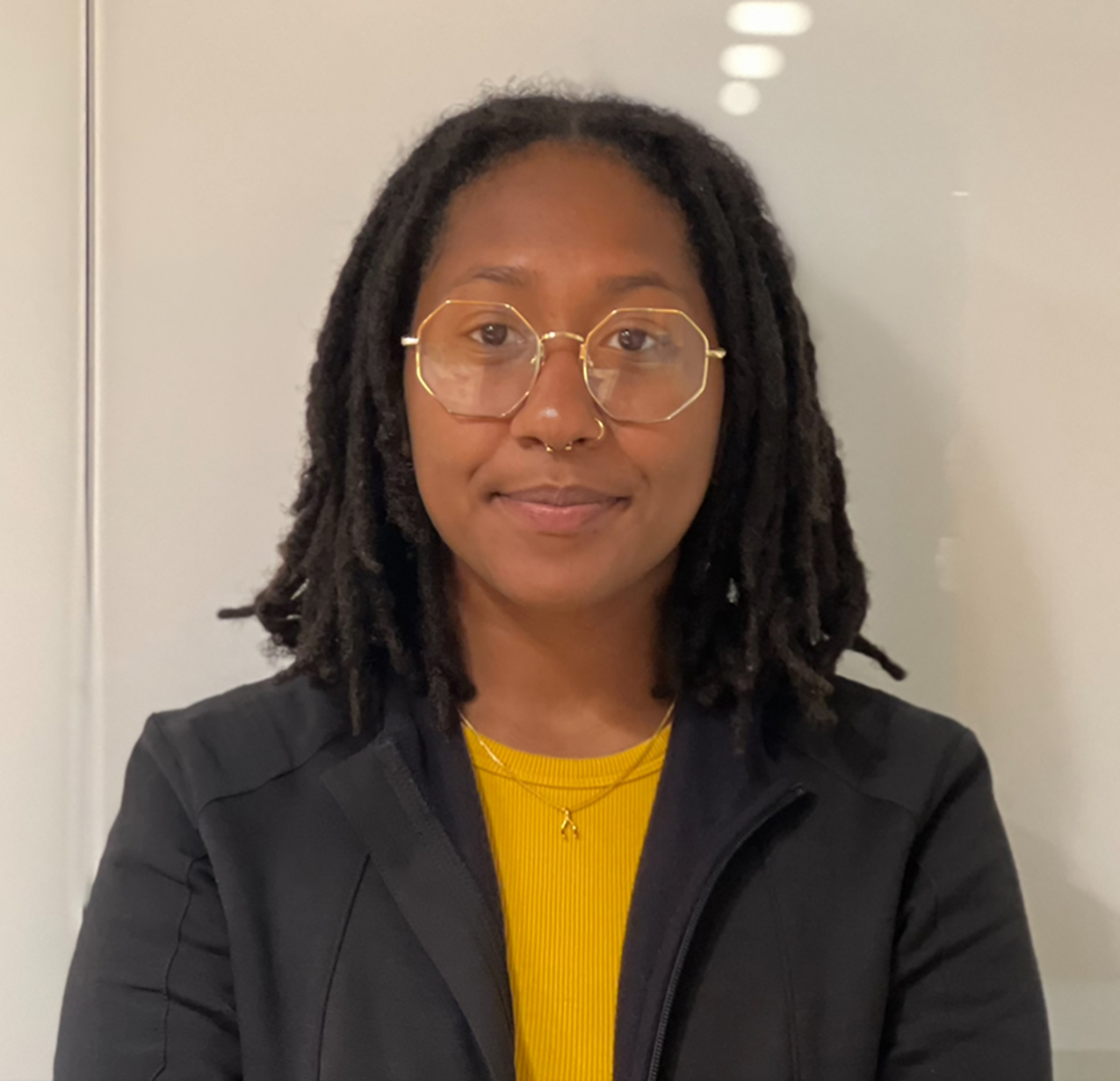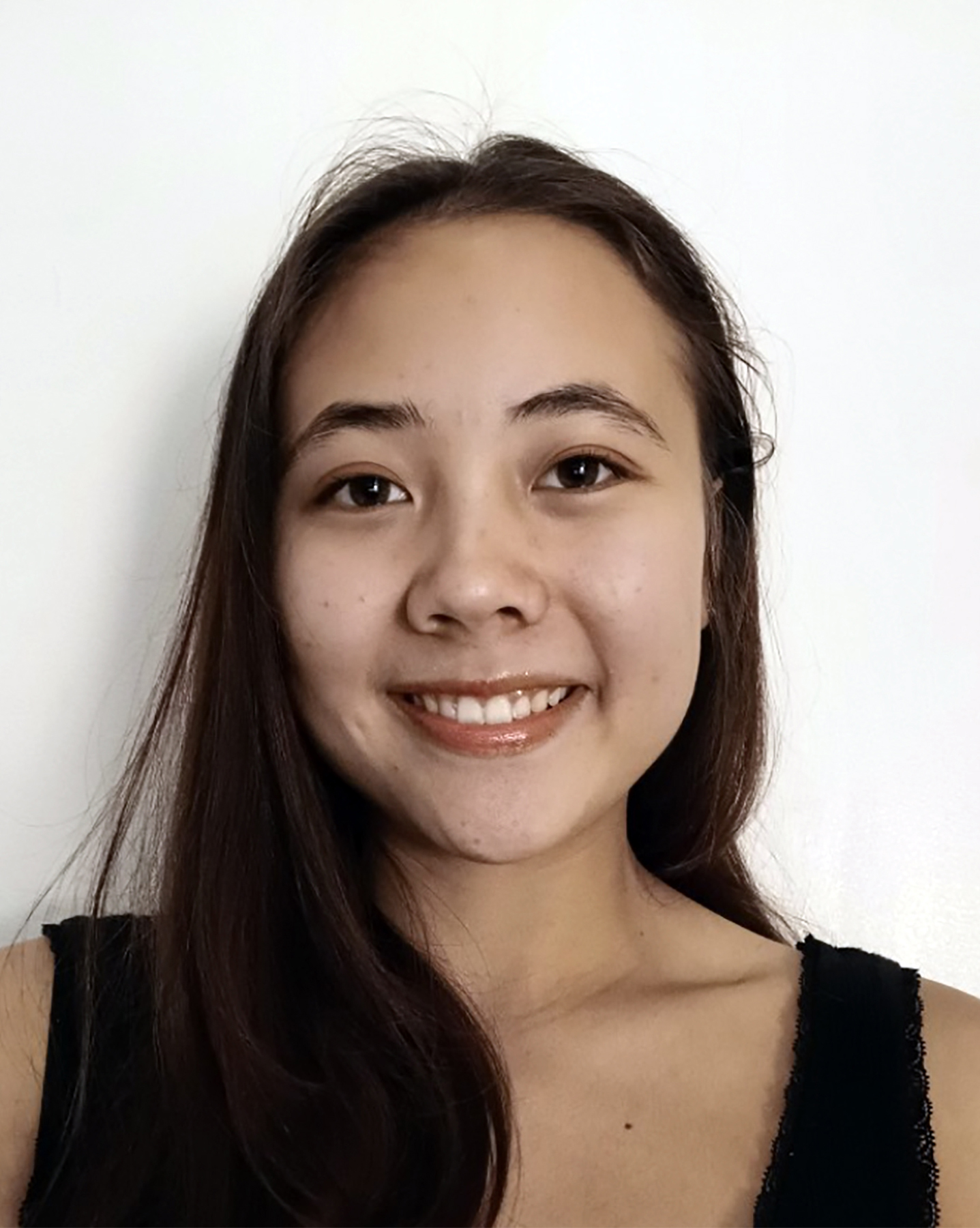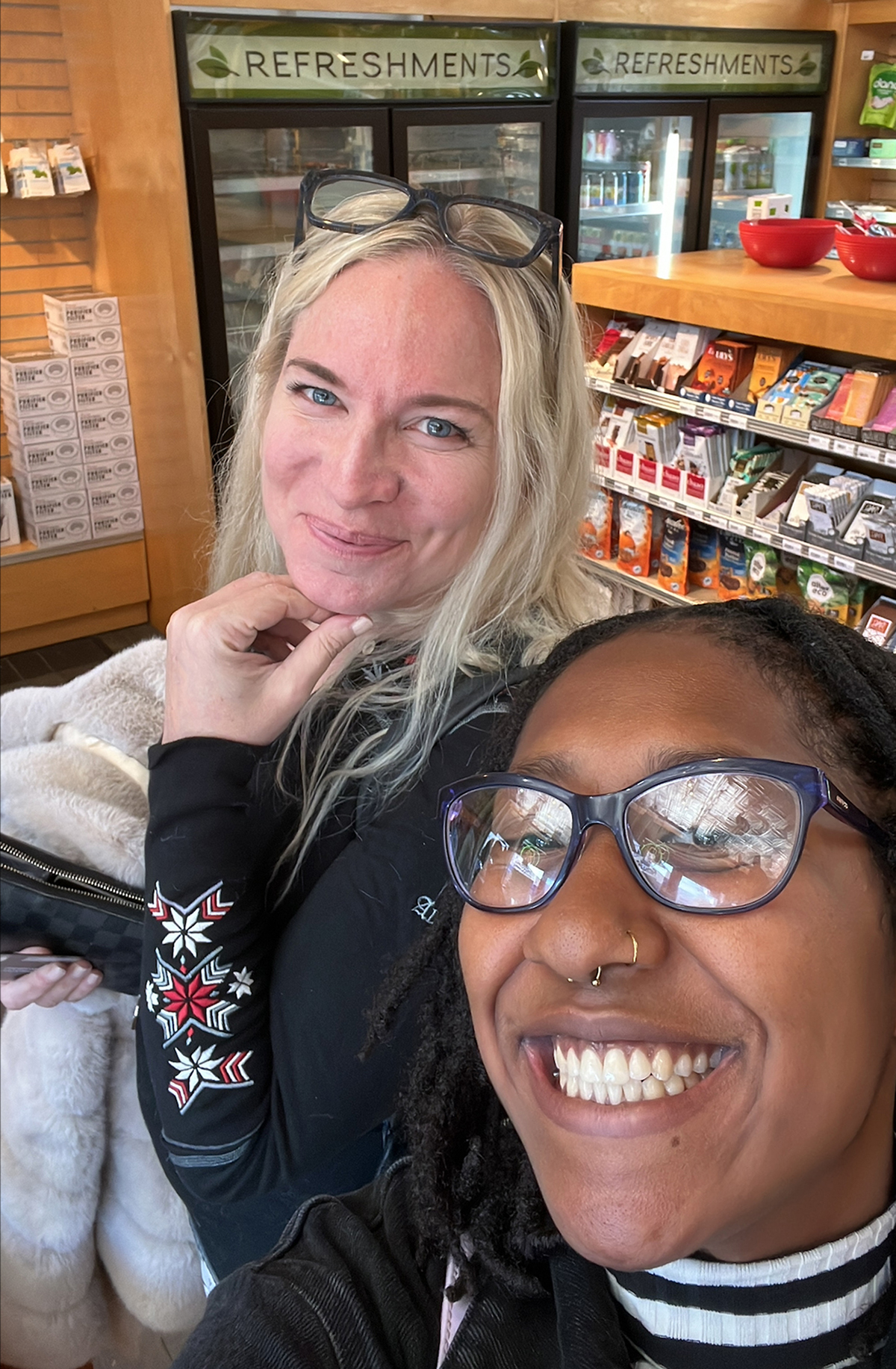

By Rich Beebe P’10
One of the hallmarks of the Westover experience — for both students and alumnae alike — has been the close connection fostered across generations of Westover women. These connections have only grown as more and more alumnae have become leaders in their professions and the School has encouraged alumnae to network not only with one another but increasingly with Westover students.
The mentorship program offered through Westover’s participation in the Invest in Girls (IIG) program is one of the most recent opportunities for alumnae and students to connect with one another.
One of the most active alumnae in the IIG mentorship program has been Rachel Minard ’87, the founder and CEO of Minard Capital LLC, a premier asset-raising consultant for the global alternative investment industry based in San Francisco.
Since 2015, Rachel has served as a mentor for nine Westover students participating in the IIG program.
Asked about the value of mentorship programs, Rachel said, “It’s a lot of work to be a capable young woman. Each young woman has so much power, beauty, ingenuity, courage, moxie, creativity, perceptive observation, and insight. Yet some haven’t yet unleashed these superpowers, while others still haven’t been in situations or experiences such that they can draw actively from these powers.”
“Well before sharing experiences or remedies, tips or techniques,” Rachel explained, “I believe it’s essential to establish a baseline trust between two people. This is absolutely essential. In this safe and trusted place, young women can unsheathe their tools and unfold their wings without trepidation to better understand who they really are.”
“It’s an honor and privilege to be a mentor or advisor,” Rachel said. “This also becomes a great standard for establishing healthy relationships down the road — to know what you’re worth and to know what it feels like to be loved for exactly who you are, not all the deficiencies many external forces (notably social media) seem to constantly force young women to compare themselves against.”
Ironically, Rachel noted that she herself “never had a mentor or advisor in my career — at least not any who proactively offered or assumed that role. Instead, I sought out those whose energy and strength were so apparent … to learn everything I could — to find the root of their passion.”
As a student at Westover, Rachel recalled, “I spent every day hunting for inspiration and would find it in the most unlikely but beautiful places” — usually from many of her teachers’ deep commitments to their fields of expertise. Each of these Westover teachers were tapping into an energy from which they derived tremendous pleasure, passion, and drive.”
The highlights of her own experiences serving as a mentor in the IIG program, Rachel said, “are unquestionably earning the trust and respect of Westover students such that we can have fun, be honest, share stories, and confide in each other about life’s many challenges.”
Getting students to trust their own “original thoughts” is essential, Rachel added. “Not what they think they should say or know, but what they actually think, and then to have the tools and language to explain not that they think something but why they do. What inspired the conviction behind those beliefs?”
In her discussions as an IIG mentor, Rachel said, the students have displayed a number of valuable qualities — “critical thinking, a natural curiosity, a natural competitive impetus and drive to win, and a discipline to learn from their mistakes to gain wisdom — which in turn becomes personal confidence and a growing strength in their convictions. You can see them become emboldened.”
Because of her own experiences as an IIG mentor, Rachel said, “I would absolutely recommend anyone eager and willing to contribute to become an IIG mentor or take an active role in Westover Connect programs.”
“Ensure that you have the time to commit properly to this commitment,” Rachel advised. “It requires time and care and love and attention — it’s not something you phone in. It’s something that will only be as useful as the time and effort put into it.”
In addition, Rachel said, “start from the very beginning. Establish a trusted friendship where both people are willing to be honest, vulnerable, loyal, discrete, and where each discussion is rooted in love. It must be rooted in the delight in giving back and the rewards of such contributions being the reward itself.”
Finally, she added, “allow for fluidity — see where the conversation takes you vs. some rigid framework of what you’re supposed to be or do or teach or ask. Pour humanity into each discussion and see where [it] takes you both. Those are the most memorable moments, when serendipity is allowed to exist and flourish.”
Reflecting on her experiences pursuing her career, Rachel noted, “When I study those who are successful in not just my industry but largely any industry, there is a true sense of drive and passion but, even more importantly, a sense of unfinished business. They all want to use the full utility of their talents — as much as they can, for as long as they can, while they can. That’s the win.”
With that in mind, Rachel said, “This is what schools must develop, parents must amplify, and mentors must help uncover and help cultivate. If we could give Westover’s students any one superpower, it would be the authority of their audacity ‘To Think, To Do, To Be’ and to never question, waiver, deviate, or be deflated from their boldest dream.”
Three Alumnae on the Value of Mentorship
Three recent Westover graduates — Maddie Hurtgen ’18, Zoe Al-Tawiti ’20, and Wava Chan ’21 — reflect on the impact of their experiences in the School’s Invest in Girls program. All had Rachel Minard ’87 as their IIG alumna mentor during their junior years.
Maddie Hurtgen ’18
 Maddie credits both her IIG studies in general and her conversations with Rachel as her mentor in particular as having a profound and lasting impact on her future.
Maddie credits both her IIG studies in general and her conversations with Rachel as her mentor in particular as having a profound and lasting impact on her future.
“They helped me shape my plans for my life,” Maddie said.
“The IIG program helped instill the importance of saving money,” she recalled. “It really motivated me to start an investment account as soon as I turned 18, and to make sure I was being more intentional, making sure I was setting aside some of my income for savings from every single job I have.” In fact, Maddie was able to convince several of her friends in college to set up investment accounts of their own to plan for their financial security.
Having conversations with Rachel as her mentor, Maddie said, “resulted in a major shift in the way I wanted to plan my life. A lot of the conversations I had with her were about what I was passionate about and what I wanted to do with my future.”
In one of their Facetime sessions, Maddie recalled, “I told her about taking one of my first Environmental Studies classes. She could see my face light up and how excited I got talking about it.” Rachel encouraged her to explore her interests in the field. As a result, before starting her freshman year at Hamilton College mid-year, she took part in a Semester at Sea program through Sea Education Association based in Woods Hole, Massachusetts.
After graduating from Hamilton in 2022 with a B.A. in Environmental Studies, she was hired as the executive assistant to Sea Education’s Director of Development; in January, she was then named its Alumni Relations Coordinator.
“It’s been a life-changing experience for me,” she said. “It’s an exciting world to be in.”
Maddie credits Rachel as being a factor in how she approached her college studies and career. “It was nice to have Rachel as a sounding board, to be able to share experiences with an adult who had been through the same thing when she was a student.”
Zoe Al-Tawiti ’20
 When Rachel was Zoe’s mentor during her junior year at Westover, Zoe recalled that they developed a special connection through their mentoring conversations.
When Rachel was Zoe’s mentor during her junior year at Westover, Zoe recalled that they developed a special connection through their mentoring conversations.
“Rachel was just interested in me as a person,” Zoe said. “We would discuss what was going on in our lives.” Zoe felt a special connection even though, while she was at Westover, she intended to pursue studies in Geology and not in business.
At Washington University, however, Zoe soon found herself an English major and then decided to pursue a minor in Entrepreneurship after taking an elective in that field.
“I didn’t see that coming,” she said with a laugh.
Through the university’s Skandalaris Center for Interdisciplinary Innovation and Entrepreneurship, Zoe was reintroduced to many of its IIG-like programs. “I have always considered myself a saleswoman,” she explained, “but I didn’t think entrepreneurship was something I could do as a career.” Through the center she helped create a club for black entrepreneurs and explored possible business opportunities.
“I soon reached out to Rachel,” Zoe recalled, “and let her know I missed our talks and asked her if she would ever be free for a Zoom call — and she was.” Their renewed connection led Zoe to apply for a position as a summer intern with Rachel’s firm, Minard Capital, in 2022.
As an intern, Zoe worked remotely from her home in New York, connecting with other members of Rachel’s research staff and her personal assistant on projects via phone, email, and Zoom calls.
Then, last October, Rachel surprised Zoe for her 21st birthday with a plane ticket to visit Rachel and her husband Douglas for a weekend in California. It was the first time they had actually met in person. “The visit was everything I thought it would be,” Zoe said, “and more.”
Rachel said she and Zoe didn’t connect one-on-one often during Zoe’s internship — “Not nearly as much as I wish we had!” But she still knows Zoe well from their connection that began with her time as Zoe’s mentor at Westover.
“Zoe has one of the most important strengths and qualities of a great investor,” Rachel said. “She doesn’t believe anything on face value unless she can validate and verify it herself. That’s a brilliant tool in all facets of life and requires a maturity and understanding of oneself that Zoe has. She would pose a problem, and I would work with her to unpack the problem by asking a litany of questions to uncover what we know, what we don’t know, what risks we can foresee, which we cannot, which outcomes we can control, and which we cannot. ” It’s a way of thinking, Rachel said, “that professional investors must tap into when making a decision.”
Wava Chan ’21
 Having a number of mentors like Rachel has helped Wava her while pursuing her studies, both at Westover and beyond.
Having a number of mentors like Rachel has helped Wava her while pursuing her studies, both at Westover and beyond.
“Rachel was a good mentor,” Wava said, during her junior year in the IIG program.
“Originally the program shaped my plans for college,” Wava recalled. “I had planned to minor in business along with my major in engineering. However, I transferred after my freshman year to Harvey Mudd College, which does not offer a business minor, and so I am no longer able to pursue that path. However, I still appreciate and find valuable, what I learned in IIG. I hope to use that knowledge in the future — maybe to invest one day.”
At Harvey Mudd, Wava said, “I do find myself seeking out female mentors these days. I’ve been a part of the Society of Women Engineers for my entire college career, which has been a super valuable resource, and it reminds me of IIG in a lot of ways. I think being a part of IIG made me more likely to seek out a similar resource or community in college.”
In fact, Wava noted, “I do my best to serve as a guide/mentor for my younger peers.”
Alumnae as Mentors for Westover’s Invest in Girls Program
For the past decade, Westover has partnered with Invest in Girls (IIG), a program of the Council for Economic Education, with the goal of ushering in a new generation of financially literate students and increasing the number of women working in finance.
“The IIG curriculum is a mix of classroom learning, field trips, and mentoring,” explained Jodi Wasserstein, Westover’s IIG Program Director. “IIG students regularly take field trips to visit financial institutions like the New York Stock Exchange, attend workshops with Westover alumnae, and participate in summer enrichment opportunities.”
“Through the IIG program,” Jodi added, “our students have the opportunity to learn from and engage with industry leaders in the fields of finance and investment. Westover students who participate in IIG gain the skills needed in the world of finance, and ultimately the confidence to become independent and influential women.
During the second year of the three-year program, IIG students are paired with Westover alumnae who serve as mentors. “The goal of the mentorship program is to connect students with women in business for regular conversations and help students recognize the importance of mentors in their careers and lives, as they begin to build their networks,” Jodi explained.
“By having these conversations,” she added, “our students are better equipped to seek out mentors in the subsequent phases of life. The mentors often reinforce what the students are learning in the IIG workshops.”
Jodi noted that the interaction between students and alumnae can be inspirational for both sets of participants.
“Alumnae mentors are energized by engaging with young people just beginning to think about their careers and their independent lives,” Jodi said. “It helps the mentors to feel connected to Westover and it is gratifying to know that they are giving back to the school and hopefully helping one student chart their course.”









%20w%20Raleway.jpg&command_2=resize&height_2=85)





